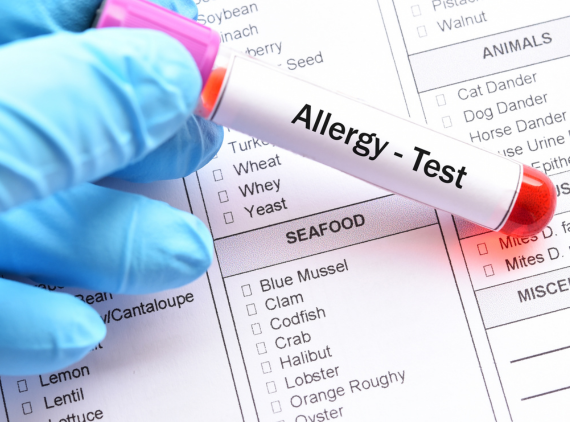
5 Signs You Might Need Allergy Testing
Allergies can be sneaky. Sometimes they present with obvious symptoms like sneezing fits or skin rashes, but in many cases, the signs are more subtle and easily mistaken for other issues. Because untreated allergies can significantly affect your health and quality of life, recognizing the signs that you might need allergy testing is essential. In this post, we’ll walk through five common indicators that it might be time to see an allergist and undergo formal testing.
1. Persistent Cold-Like Symptoms That Don’t Go Away
If you find yourself constantly dealing with a runny nose, nasal congestion, postnasal drip, or itchy eyes, it might not be just a cold or seasonal virus. Allergic rhinitis, also known as hay fever, can mimic the symptoms of the common cold. Unlike viral infections, allergy symptoms can persist for weeks, months, or even year-round depending on the triggers.
You may notice your symptoms flare up in specific environments—such as when you’re outdoors, around pets, or inside dusty rooms. If your “cold” never truly goes away or seems tied to certain seasons or surroundings, allergy testing can help pinpoint the cause and lead to long-term relief.
2. Frequent Sinus Infections or Chronic Congestion
Recurring sinus infections or chronic nasal congestion could be a sign of underlying allergies. Allergens cause inflammation in the nasal passages, which can block proper drainage and create the perfect conditions for bacteria to grow.
If you experience sinus pressure, facial pain, or thick nasal discharge more than a few times a year, allergies might be a contributing factor. Identifying and treating the allergens responsible can reduce inflammation, improve sinus function, and decrease the frequency of infections. Allergy testing helps confirm this connection so a more targeted treatment plan can be developed.
3. Skin Issues Like Rashes, Hives, or Eczema
Skin conditions are often among the first physical signs of an allergic reaction. If you’re experiencing chronic hives, unexplained rashes, or eczema flare-ups, it could be due to allergens in your environment or even in your diet.
Common culprits include certain foods, pet dander, pollen, mold, and detergents or cosmetics. While over-the-counter creams and moisturizers might provide temporary relief, they won’t stop the underlying immune response. Allergy testing can help you identify the source of the irritation so you can avoid triggers and receive more effective, lasting treatment options.
4. Asthma or Breathing Difficulties
Asthma and allergies often go hand in hand. In fact, up to 80% of people with asthma also have allergic triggers. If you’re experiencing shortness of breath, wheezing, chest tightness, or frequent coughing—especially after exposure to dust, pollen, pet hair, or cold air—you may be dealing with allergic asthma.
Identifying which allergens are exacerbating your respiratory issues is critical to proper asthma management. Allergy testing allows your healthcare provider to develop a strategy that may include avoidance techniques, allergy medications, or even immunotherapy to reduce sensitivity and improve breathing over time.
5. Reaction to Foods That’s Hard to Pinpoint
Food allergies and sensitivities can be tricky to identify. Reactions can range from immediate and obvious (like swelling or hives) to delayed and subtle (like bloating, fatigue, or gastrointestinal distress). If you notice that you consistently feel unwell after eating certain foods but aren’t sure which ones are the problem, allergy testing may provide answers.
Skin prick tests or blood tests can identify IgE-mediated allergies to common food triggers such as dairy, nuts, shellfish, wheat, and soy. While food sensitivity testing is different from allergy testing, the results can still be helpful in guiding an elimination diet and reducing unwanted symptoms.
When to See an Allergist
If any of these five signs sound familiar, a visit to a board-certified allergist may be your next best step. An allergist will conduct a thorough medical history, perform relevant tests, and interpret the results in the context of your lifestyle and symptoms.
Getting tested doesn’t just provide answers; it opens the door to effective treatment. From targeted medications and lifestyle modifications to immunotherapy, identifying your specific triggers allows for personalized care and lasting relief.
Benefits of Early Diagnosis
Delaying allergy testing can lead to worsening symptoms, increased medication use, and a lower quality of life. For children, untreated allergies can also interfere with learning and sleep. For adults, they can lead to missed workdays, increased healthcare costs, and even complications like ear infections, asthma, or chronic inflammation.
The earlier you identify and address your allergies, the easier it is to prevent escalation and improve your overall well-being. A simple test can be the first step in transforming how you feel every day.
Final Thoughts
Allergy testing is a safe, straightforward process that yields valuable insights into your health. Whether you’re battling chronic sinus infections, skin flare-ups, unexplained fatigue after meals, or breathing troubles, understanding your allergic triggers is key to finding relief.
If you’ve experienced any of the signs mentioned above, don’t ignore them. Talk to a healthcare professional about allergy testing and take control of your symptoms before they control your life. With the right diagnosis and support, living allergy-free is not only possible—it’s within reach.
